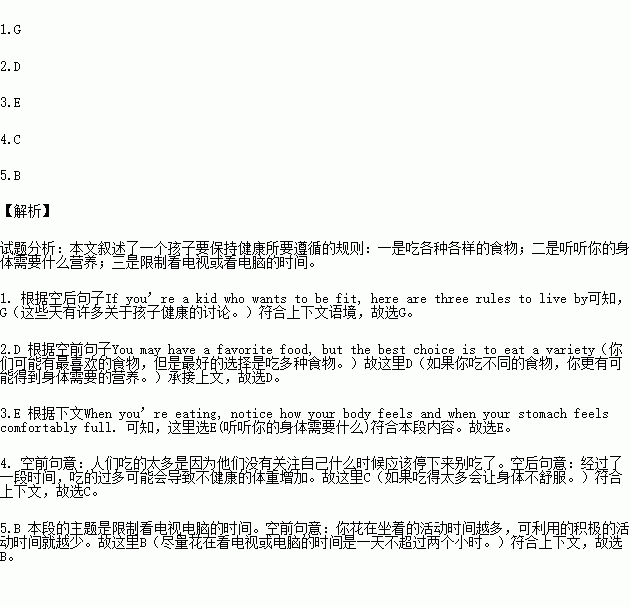题目内容
根据短文的内容,从短文后的选项中选出能填入空白处的最佳选项,选项中有两项为多余选项
Rules on how to be a fit kid
Being fit is a way of saying a person; a person eats well, gets a lot of physical exercise, and has a healthy weight. __1.__ If you're a kid who wants to be fit, here are three rules to live by.
1.Eat a variety of foods.
You may have a favorite food, but the best choice is to eat a variety. __2.__ Taste new foods and old ones you haven't tried for a while. Some foods, such as green vegetables, are more pleasing the older you get. Shoot for at least five servings of fruits and vegetables a day—two fruits and three vegetables.
2.__3._
What does it feel like to be full? When you're eating, notice how your body feels and when your stomach feels comfortably full. Sometimes, people eat too much because they don't notice when they need to stop eating. __4.__ And over a period of time, overeating can lead to unhealthy weight gain.
3.Limit screen time
What's screen time? It's the amount of time you spend watching TV or DVDs, playing video games, and using the computer. The more time you spend on these sitting-down activities, the less time available for active stuff, like basketball, bike riding and swimming. __ 5.__
These rules aren't magic. However, follow them most of the time and you can become a fit kid sooner or later.
A.Drink water and milk.
B.Try to spend no more than 2 hours a day on screen time.
C.Eating too much can make you feel uncomfortable.
D.If you eat different foods, you're more likely to get the nutrients your body needs.
E.Listen to your body.
F.Ask your parents to help you do your favorite activities regularly.
G.There're a lot of discussions these days about fit kids.

